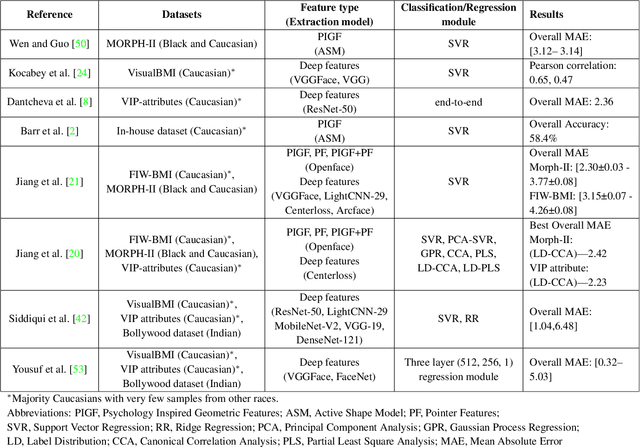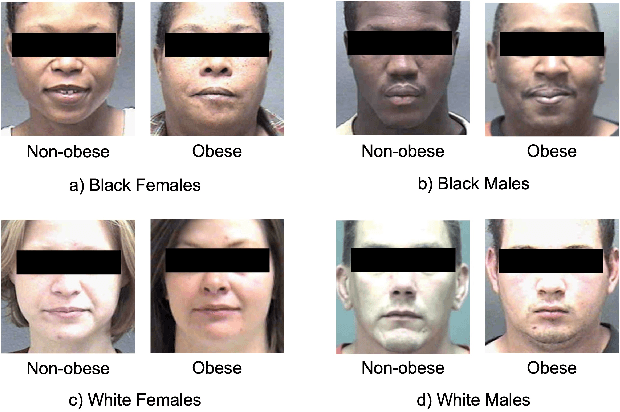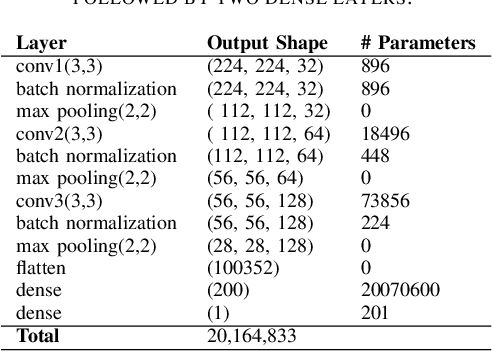Hera Siddiqui
An Examination of Bias of Facial Analysis based BMI Prediction Models
Apr 21, 2022



Abstract:Obesity is one of the most important public health problems that the world is facing today. A recent trend is in the development of intervention tools that predict BMI using facial images for weight monitoring and management to combat obesity. Most of these studies used BMI annotated facial image datasets that mainly consisted of Caucasian subjects. Research on bias evaluation of face-based gender-, age-classification, and face recognition systems suggest that these technologies perform poorly for women, dark-skinned people, and older adults. The bias of facial analysis-based BMI prediction tools has not been studied until now. This paper evaluates the bias of facial-analysis-based BMI prediction models across Caucasian and African-American Males and Females. Experimental investigations on the gender, race, and BMI balanced version of the modified MORPH-II dataset suggested that the error rate in BMI prediction was least for Black Males and highest for White Females. Further, the psychology-related facial features correlated with weight suggested that as the BMI increases, the changes in the facial region are more prominent for Black Males and the least for White Females. This is the reason for the least error rate of the facial analysis-based BMI prediction tool for Black Males and highest for White Females.
AI-based BMI Inference from Facial Images: An Application to Weight Monitoring
Oct 15, 2020



Abstract:Self-diagnostic image-based methods for healthy weight monitoring is gaining increased interest following the alarming trend of obesity. Only a handful of academic studies exist that investigate AI-based methods for Body Mass Index (BMI) inference from facial images as a solution to healthy weight monitoring and management. To promote further research and development in this area, we evaluate and compare the performance of five different deep-learning based Convolutional Neural Network (CNN) architectures i.e., VGG19, ResNet50, DenseNet, MobileNet, and lightCNN for BMI inference from facial images. Experimental results on the three publicly available BMI annotated facial image datasets assembled from social media, namely, VisualBMI, VIP-Attributes, and Bollywood datasets, suggest the efficacy of the deep learning methods in BMI inference from face images with minimum Mean Absolute Error (MAE) of $1.04$ obtained using ResNet50.
 Add to Chrome
Add to Chrome Add to Firefox
Add to Firefox Add to Edge
Add to Edge